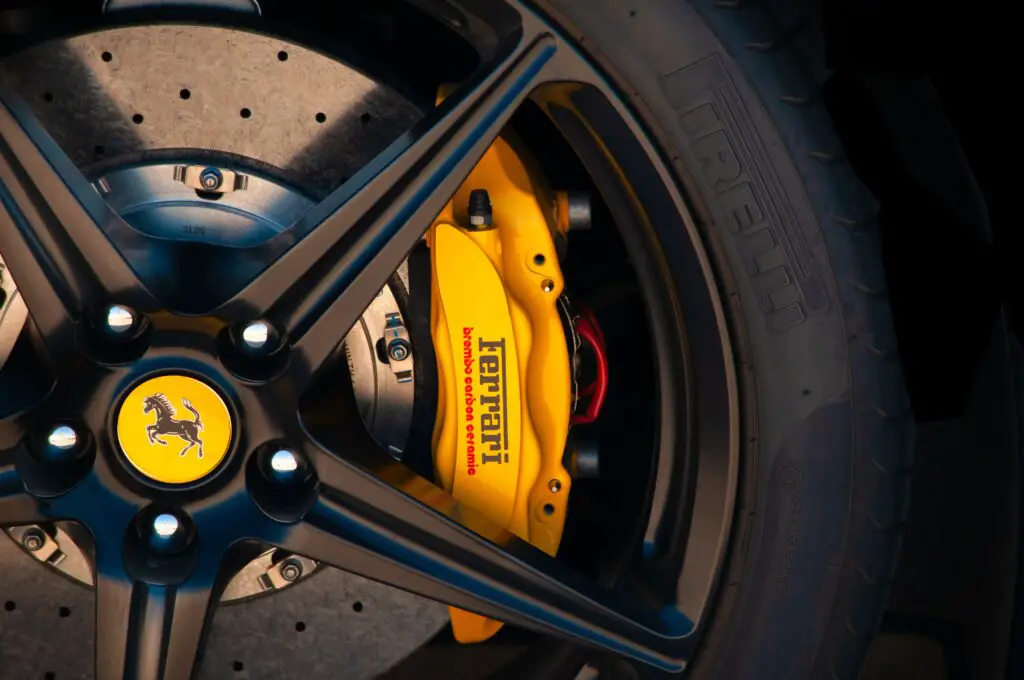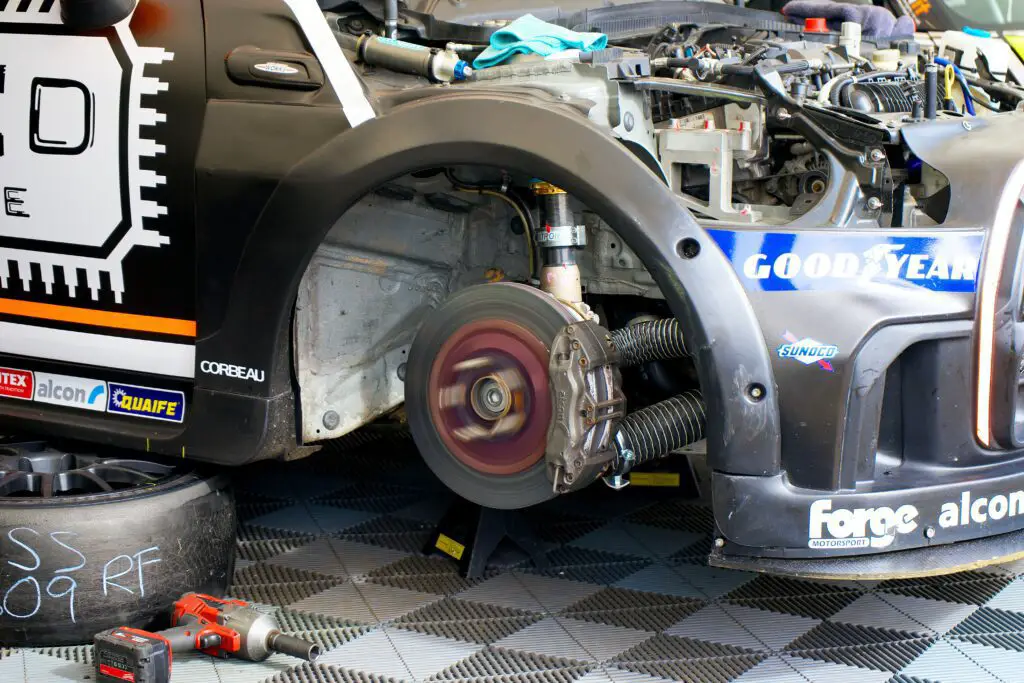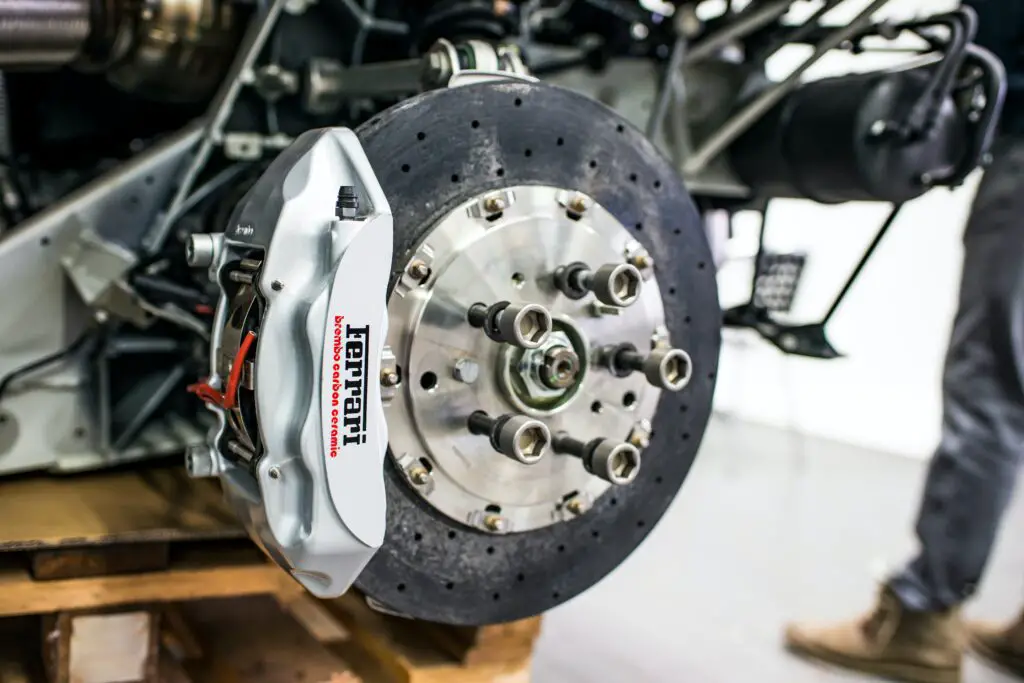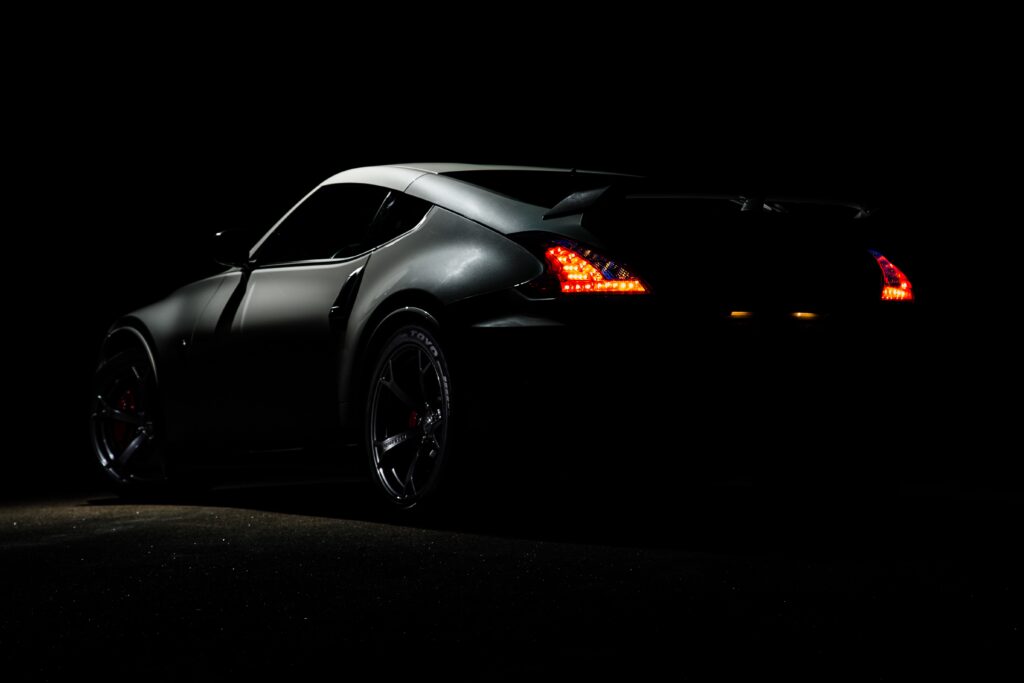The high-pitched squealing sound your brakes make when you first press on the pedal can be annoying and concerning. Is this normal or a sign of bigger problems? Let’s explore the top reasons why do my brakes squeal when I first start driving and how to stop the noise.
Overview of Brake Noise Issues
Brake squealing, squeaking, or grinding noises, especially when you first start driving, are usually indicative of a problem that should be addressed promptly. While sometimes normal, ongoing squealing or chattering is not good and risks unsafe braking.
Common causes of Why Do My Brakes Squeal When I First Start Driving include:
- Moisture, rust, or oxidation on rotors
- Sticking, binding, or malfunctioning caliper
- Glazed, warped, or unevenly worn rotors
- Worn, damaged, or improper brake pads
- Loose, damaged, or missing brake hardware
- Improper bedding of pads and rotors
- Contaminated brake fluid or grease
Minor brake noise that goes away once the system warms up is often normal. However persistent chirping, squeaking, or grinding indicates components need cleaning, adjustment, lubrication, or replacement.
Reasons Brakes Squeal When First Driving
Why Do My Brakes Squeal When I First Start Driving. Let’s examine the most common root causes of temporary and persistent brake squeal in more detail:
1. Moisture Buildup on Rotors
Moisture, usually in the form of condensation, can accumulate on rotors overnight. This causes surface rust and corrosion. When you first apply the brakes, the friction from the pads removes this rust layer, generating a squealing or grinding noise that usually dissipates within a few brake applications.
Wet conditions promote rotor rust. In humid climates, washing your vehicle, driving through puddles or extended outdoor parking also increases moisture contact with rotors. The noise stops once the rust is worn away and the rotors heat up. This temporary squeaking is harmless, though annoying.
2. Sticking Brake Caliper
A sticking or sluggish brake caliper piston results in uneven pad pressure on the rotor. This can cause pads to vibrate against the rotor when braking, generating high-pitched squeals. A broken caliper piston, damaged seal, or contaminated fluid can prevent smooth retraction of the piston and cause sticking.
The heat from driving and braking will often free up a sticking caliper as components expand. This eliminates the squeal once the system warms up. However, a sticking caliper must be repaired to avoid uneven pad wear, overheating, and safety issues.
3. Glazed or Warped Brake Rotors
Over time, heat from braking causes uneven deposits of hardened brake pad material on rotors. This results in a glazed surface with hardened spots that prevent pads from making uniform contact. Hitting the brakes causes pads to vibrate against these glazed areas, creating squealing.
Warped rotors that have uneven surfaces due to overheating also cause brake squeal for the same reasons. With both issues, the noise usually diminishes once rotors warm up and deposits burn off. However, damaged rotors must be resurfaced or replaced to prevent ongoing issues.
4. Worn, Damaged or Wrong Brake Pads
Brake pads with minimal friction material often squeal due to increased vibration against the rotor. Some pad wear indicators specifically generate noise to notify drivers that pads are nearly worn out. Uneven pad surfaces caused by damage or wear also create vibrations and squealing.
Incompatible Brake pads without proper shims or insulation between the pad backplate and caliper can squeak constantly. And inferior quality aftermarket pads may simply be prone to vibrating and noise compared to name-brand pads.
5. Loose, Damaged or Missing Hardware
Brake caliper brackets, slides, clips, and pins are all essential hardware components that allow the system to operate smoothly. Loose, corroded, or damaged hardware can allow play and vibration in caliper-positioning. This contributes to brake squeal, especially with initial braking.
Missing hardware like shims, dampeners, or retaining clips also reduces the stability of brake pad positioning within the caliper. This instability promotes uneven pressures and vibrations that cause squealing.
6. Improper Bedding of Pads and Rotors
Freshly replaced pads and rotors often generate some normal squeaking initially during the bedding-in period. This wears away protective coatings and allows components to mate properly through even the transfer of pad material onto rotors.
However improper bedding can leave uneven transfer patterns between pads and rotors that promote vibrations and squealing. Aggressively bedding components or not allowing adequate time for mating surfaces to wear in smoothly frequently cause bedding noise issues.
7. Contaminated Brake Parts
Brake fluid, grease, or oil that contacts rotors or pads can leave behind deposits that interfere with proper friction. This contamination prevents smooth contact between pads and rotors. Hitting the brakes causes components to vibrate against each other, producing squeals.
Seals, cylinders, hoses, and wheel bearings are potential fluid leak sources. Improper lubrication of hardware also spreads grease onto brake components. Once components are cleaned and the leak is fixed, the squeaking stops.
Fixing Squeaky Brakes
Why Do My Brakes Squeal When I First Start Driving. Eliminating brake squeal requires identifying and addressing the specific cause:
Moisture: Gently warm up brakes to dissipate moisture and dry rotors fully. Improve drainage around calipers if wet frequently.
Sticking Caliper: Free up pistons, lubricate hardware, and clean slides. May need a caliper seal and hose replacement.
Glazing/Warping: Machine or replace rotors. Improve bedding practices. Consider upgrading pads and rotors.
Worn/Damaged Pads: Replace pads immediately. Check rotors for damage too. Lubricate shims, slides, and hardware.
Loose Hardware: Tighten mounts and hardware to specs. Replace damaged components. Lubricate.
Bedding Issues: Re-bed pads and rotors properly with gradual break-in.
Contamination: Thoroughly clean pads, rotors, and calipers. Fix leaks. Avoid lube contacting brakes.
Some common solutions to quiet squeaky brakes:
- Lubricate caliper slides, pins, and pad abutments
- Adjust caliper mounts to reduce play
- Replace damaged shims, dampeners, and hardware
- Clean and sand or replace glazed rotors
- Replace contaminated brake fluid and grease
- Replace warped, damaged, or worn rotors
- Install high-quality, compatible brake pads
Bedding in new pads and rotors properly is also key to preventing noise issues when components are replaced.
Note: Be cautious of brake-sitting lubes, greases, or anti-squeal pastes. These can backfire and cause more squealing issues. Only use sparingly on pad backing plates and caliper abutments, avoiding rotor contact.
Is Brake Squeal Until Warmed Up Normal?
Brakes commonly squeak upon first application, especially if rotors are damp or cold overnight. This noise usually stops once the system warms up, the pads and rotors mate smoothly, and any light surface corrosion wears off.
However, squealing that persists longer than the first few brake applications is not normal. Ongoing squeaking, chattering, or grinding indicates an underlying issue needing attention for proper brake operation and safety.
While moisture or glazing may be the culprit and heat silences the squeal, damaged parts still need replacement or servicing to resolve the root problem. Warming the brakes repeatedly just masks a larger issue that will progressively worsen.
Why Do My Brakes Squeal When I First Start Driving vibration or grinding occurs when braking? Repair the specific cause rather than repeatedly warming components to temporarily quiet the squeal.
Why Do My Brakes Squeak After New Pads and Rotors?
Freshly replaced brake pads and rotors will often squeak and make other noises initially during the bedding-in period. This noisy wear-in phase is normal for the first couple hundred miles as pad material transfers evenly onto rotor surfaces.

However, ongoing brake squealing well after the bedding period, or failed noise suppression during bedding, indicates an underlying issue. Common causes include:
- Damaged, low-quality, or incompatible new parts
- Glazing or warping due to excessive heat during bedding
- Uneven pad deposition through overly aggressive driving
- Loose, missing, or worn brake hardware
- Contaminated components with oil, grease, or fluids
- Failure to properly clean and prepare components
New pads and rotors should not normally squeal constantly after bedding, barring defective parts or improper installation. Seek professional diagnosis and repair to resolve ongoing post-replacement brake noise.
Why Do My Brakes Squeak on a Cold Start?
Why Do My Brakes Squeal When I First Start Driving۔ Squeaky brakes upon first use, especially after the vehicle has been parked overnight, are primarily caused by condensation buildup? Cold, damp air contacts the rotors and forms a thin layer of surface corrosion. Upon initial braking, the rotor rust generates grinding or squeaking until it wears off.
This moisture-induced squealing usually disappears within a few brake applications as components warm up. The noise stopping once the system heats up indicates corrosion, not damage, is the likely culprit.
But other issues like glazing, sticking calipers, worn pads, or loose hardware could mimic the temporary morning squeal of surface corrosion. If the noise persists well after the initial warmup, have the specific cause inspected and repaired?
How Long Will New Brakes Squeal?
Newly replaced brake pads and rotors commonly squeal and make noise during the bedding-in period, which generally lasts the first 200-300 miles of use. This allows surfaces to properly mate as material transfers evenly between pads and rotors.
Excessive squealing beyond the initial bedding phase indicates underlying issues. But some minor noise when braking lightly is normal for up to 1,000 miles as pads fully season to rotors. Increased noise after the break-in period usually means something needs adjustment or replacement.
Factors that shorten or extend bedding noise duration include driving style, pad compounds, surface coatings, and proper preparation. Seek repairs if loud squealing persists well past the typical couple hundred-mile threshold.
Are Brakes Noisy When Cold?
Brakes, especially the rotors, can generate some temporary noise when cold that normally disappears as components warm up. Common cold weather noises include:
- Squeaking from surface corrosion on chilled rotors
- Sticking calipers until pistons loosen
- Stiff rubber components until heated and expanded
- Reduced lubrication properties of cold fluid and grease
These issues cause moving brake parts to catch and vibrate when pressed together from a complete stop. Noise is generated by the resulting metal-on-metal contact. Once heated through driving and braking, the noise usually subsides.
But cold-induced noises also occur due to worn pads, damaged rotors, loose hardware and other problems not resolved by heating. Have persistent cold brake noises inspected and serviced to fix the underlying cause?
Is It OK to Drive With Squeaky Brakes?
Minor morning squeaks that disappear quickly as the brakes heat up are generally safe to drive with for short periods. However, any consistent or worsening brake squealing needs to be addressed promptly.
Ongoing chirping, squeaking, or grinding indicates components are not mating smoothly, putting undue wear on pads and rotors. This risks reduced braking power, uneven pad deposits, and rotor damage. Significant noises also signal loose hardware or malfunctioning calipers unable to apply even pad pressure.
The importance of brakes for safe driving means persistent brake noise should never be ignored. Have the cause diagnosed and corrected before extended driving with squeaky brakes. Catching problems early improves safety and prevents further wear and damage.
Will Squeaky Brakes Go Away?
Why Do My Brakes Squeal When I First Start Driving۔ Brake squeal caused by debris, moisture, or short-term glazing may go away temporarily as rotors heat up and wear smooth. But any underlying issue will remain and require repair for a permanent fix.
For example, contaminated pads will squeak less once burned clean but still need replacement. Sticking calipers may work freely with heat but have a damaged seal. Worn pads may quiet down but still lack sufficient material.
The root problem persists even if noise diminishes temporarily after warmup. Repairs like hardware replacement, rotor machining, and pad replacement are needed to permanently resolve brake squeals. Warming the components repeatedly just masks issues.
How Do I Fix Squeaky Brakes?
To stop brake squeal:

- Diagnose Cause – Inspect components and diagnose the specific reason for the noise. Consider age, damage, and wear.
- Clean Parts – Thoroughly clean rotors, pads, calipers, and hardware of contaminants.
- Lubricate – Lube caliper mounting points, pins, shafts, and pad abutments. Avoid rotor contact.
- Adjust Hardware – Tighten mounts, and replace damaged clips, shims, pins, and retainers.
- Machine or Replace Rotors – Resurface glazed rotors or replace warped and uneven rotors.
- Replace Pads – Install fresh pads free of wear, damage, and defects. Check compatibility.
- Bed Properly – Mate new pads and rotors with a controlled break-in period.
- Test Brakes – Confirm issues are resolved after repairs and break-in.
Addressing the specific cause, not just silencing noise temporarily, is key to permanently fixing brake squeal.
Do Squeaky Brakes Mean I Need New Brake Pads?
Not necessarily. While worn-out brake pads commonly squeal, other issues can cause the noise too like contaminated rotors, loose hardware, and sticking calipers. Premature pad wear is just one potential component.
Thoroughly inspect pads and other brake parts to pinpoint what needs replacement or service. Resurfacing rotors or lubricating hardware could resolve some squeals without pad replacement. However, if pads are significantly worn, replacement is needed along with other repairs.
Isolate and address the root problem based on inspection findings. Don’t assume new pads alone will resolve brake squeal unless wear is the clear cause. Carefully diagnose and service-related components as well.
Will the Squeaking Go Away as I Continue Driving?
With surface corrosion or glazing, brake squeal often dissipates as components warm up and wear smooth. However, allowing time or heat to temporarily quiet the squeak will not fix underlying issues.
The problem source, whether worn pads, damaged rotors, loose parts, or sticking calipers, persists even if noise decreases. Continued driving as-is accelerates wear and risks brake failure, unpredictable performance, crashes, and costly repairs.
Insist that mechanics thoroughly diagnose and repair the specific cause of persistent brake noise. Warming the components repeatedly just masks bigger issues needing attention. Don’t accept brake squeal as normal. Fix problems promptly for safety.
Conclusion – Why Do My Brakes Squeal When I First Start Driving?
Occasional morning brake squeal is harmless but annoying. However, consistent chirping, grinding, or squealing needs diagnosis and repair, even if the noise lessens once the brakes warm up.
Addressing the root problem, not just silencing noise temporarily, improves safety and extends system life. Allowing damaged components or improper mating in the name of quiet operation leads to accelerated wear, reduced performance, and escalating repairs.
Carefully inspect pads, rotors, calipers, hardware, and fluids when brakes squeak. Make repairs specific to diagnosed issues. Don’t simply accept ongoing squealing if it happens whenever you first apply the brakes. Identify and correct the cause.

